I’m not usually big into year-end (or, in this case, year-beginning) lists, but since I’ve done more reading over the past year than I have since I finished my MFA in 2009—inhaling a book a week back then kinda burned me out on big reading, and it’s taken a while to recover—I thought I’d share some of the ones I enjoyed the most, both fiction and nonfiction.
(Hint: Discovering the Kindle’s “Reading Insights” page and associated challenges helps, at least if you’re like me and think the idea of reading every day for a year is a cool goal—and one I just hit a few days ago—and are motivated by ticking off challenges.)
I don’t think any of these books came out in 2023, for whatever that’s worth. They’re just books I really enjoyed, in no particular order.
Lessons in Chemistry by Bonnie Garmus. I know everyone’s talking about this book, and Apple turned it into a TV series. But every woman I know who’s read it adores it for the same reason: the depiction of a woman in the 60s insisting on living by her own standards and refusing to be told she can “only” be what others tell her is one hell of an inspiring read. I just finished this one around Thanksgiving, so I haven’t watched the series yet, because I find it hard to deal with differences in adaptations when they’re so clear in my head. It’s on my list for a few months from now.
The Extended Mind: The Power of Thinking Outside the Brain by Annie Murphy Paul. I first heard about this book during lockdown from an episode of the Mysterious Universe podcast, and finally got around to reading it this year. It’s a fascinating look at all the ways we “think” outside our heads. It turns out our bodies are incredibly smart, and we’re also smarter in groups. I wish I’d read this when I was still teaching, because I think we do our kids (not to mention the rest of us) a disservice if we keep preaching at them that thinking can only happen between their ears.
Emergency Skin by N.K. Jemisin. This is actually a short story, but it packs a big punch. What happens after we’ve finally destroyed the planet? This answer isn’t what you’ll expect. I’ve been wanting to read Jemisin for a while, and this was my first time. It definitely won’t be the last.
True Companions: A Book for Everyone About the Relationships that See Us Through by
. There’s a reason Kelly’s been on my podcast twice, and it’s not just that he’s a great guest (though he certainly is)—it’s also because he writes beautiful things that hit right where they need to and resonate for a long time. It took me a while to start this book, because I wasn’t quite convinced that it was really not just for couples (sorry, Kelly!) … but of course, the author might just know what he’s talking about after all. This is a lovely book for anyone who has any sort of relationship with other human beings, which is pretty much all of us.Quit by Annie Duke. If you, like me, were raised with a family and larger culture that taught you that you should never give up on anything, especially if you’ve made a commitment to it, you need to read this book. Obviously, Winston Churchill was right about never giving up during World War II, but most of us aren’t dealing with life-and-death situations, and Duke shares multiple stories of how the refusal to give up has left entrepreneurs and others far worse off than they would have been if they’d cut their losses and done something different instead. She also gives examples of helping people make decisions about things like leaving situations where the perceived “comfort” of the known, even if the known isn’t working for you, threatens to overwhelm the possibilities of the unknown. I honestly think everyone should read it.
The Winternight Trilogy by Katherine Arden. The Bear and the Nightingale is the first book in this fantastic trilogy set in medieval Russia and steeped in Russian folklore. It took a while for the first book to draw me in, but once it did, I could barely put it down, and the next two were just as compelling. A key theme is the shift from old folk beliefs to orthodox Christianity. It also features a teenage heroine who won’t be told who she’s supposed to be, has more courage in the tip of her pinky finger than most of us would have in ten full bodies, and most definitely rescues herself. I can’t recommend it enough.
The Day of the Doctor by Steven Moffat. Those of us who grew up as Doctor Who fans in the 70s and 80s, especially in the US, remember the joys of finding new Target novelisations at our local bookstores, especially for stories we’d never seen. As I told my elder nephew last summer, these books were the only way we could watch older episodes before home video and streaming were available. The 2005 series brought these books back, and Steven Moffat turned his 50th anniversary script into something no one ever would have expected from a Target novel—usually a simple written retelling of a televised story—back in the day. He’s added perspectives he didn’t have time to put on screen and wrapped the whole story in the container of a presentation looking back at these events from some future date. There are mysteries hidden in that structure as well. It’s the most delightful Doctor Who novelisation I’ve ever read, and honestly makes me hope Moffat will start writing novels one day.
Leading with Dignity: How to Create a Culture that Brings Out the Best in People by Donna Hicks. I read this for work as part of my work for the Diversity, Equity, and Inclusion committee. We don’t think about dignity much, and it shows when you read a book like this. Workplaces that fail to acknowledge their staff’s dignity as human beings are almost always bad places to work, because people are thought of as their job function and nothing more. Of course, it’s not just up to management to shift their thinking about dignity, because we all tend to forget just that the people around us (especially cashiers, waitstaff, and other “invisible” service workers) are human on a regular basis, and we’re all part of any culture we participate in. This book challenges everyone who reads it to look at themselves honestly, not only to see where their dignity has been violated, but where they’ve violated the dignity of others. It’s a fascinating read, and not a difficult one, especially if you’re willing to turn the lens back on yourself.
The Lion Tracker’s Guide to Life by Boyd Varty. Boyd Varty inherited the Londolozi game preserve in South Africa and helped to restore its nearly-dead hunk of land to a place teeming with wildlife. (You’ve heard me mention Martha Beck many times; she’s a frequent visitor and how I heard about Boyd and his book.) He’s also, as you might have guessed, a lion tracker. If you’re interested in reconnecting with the natural world and disconnecting with the voices of culture that tell you what you should and shouldn’t do, this book is an excellent place to start. My two favorite lines, which still resound in my head: “No wild animal has ever participated in a should” and “I don’t know where I’m going, but I know exactly how to get there.”
Awe: The New Science of Everyday Wonder and How It Can Transform Your Life by Dacher Keltner. Keltner is the faculty director of UC Berkeley’s Greater Good Science Center, and also served as a consultant on Pixar’s Inside Out movie. I’ll admit I wanted this book to be as awe-inspiring a read as the topic itself, but when you try to distill something as magical as wonder into something you can explain to someone else, that effect diminishes a bit by necessity. It’s still an fascinating read that makes plain the value of awe as a transformative force for our mental and physical health, and shows how we connect with it through moments big and small, in contexts from collective movement to moral beauty to music to the wild. If you could use more awe and wonder in your life—and who couldn’t?—this book is a great place to start.
Remarkably Bright Creatures by Shelby van Pelt. Okay, so I have more than 10, mostly because I couldn’t decide between these last two. If you haven’t read this beautiful novel, you’re in for a treat. Yes, an octopus features prominently and is in fact the catalyst of several important plot points (and is also smarter and more perceptive than anyone else in the book; the title comes from his narration as he’s talking about humans). If you don’t appreciate octopi before you read this book, you will during and afterwards, and if you haven’t watched My Octopus Teacher, you’ll be tempted to by the time you’re done, if not before. Mostly, though, this is a story of lost souls trying to deal with their losses without losing themselves, and finding more than they expected in the process. It also doesn’t let up until the very last few pages, which is a feat in itself. If you haven’t read it yet, check it out.
All right: what were YOUR favorite reads this year? And what’s on your TBR list for 2024? (I’m doing
’s yearlong War and Peace read, for a start!) I’m always on the lookout for interesting new titles, so whether you have one or 21, let us know in a comment.




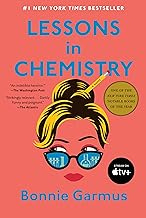
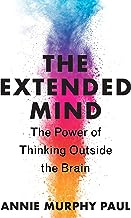
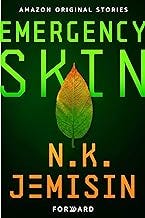
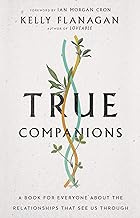

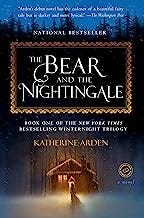
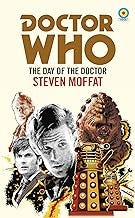
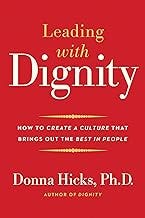
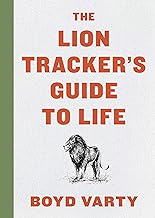
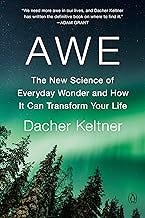
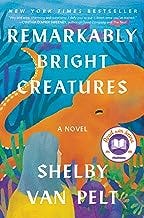
Nancy, my book of the year was The Covenant of Water by Abraham Verghese. My review of it will be coming out this Saturday. I am also doing the W&P read with Simon H. and company as well as my own read through of Steinbeck's works this year. Hope you have a great reading year.
Ooh, I loved happening upon this list, and especially intrigued by QUIT, a book I wish I’d read 20 years ago…will have to check it out! My favorite read last year was YELLOWFACE, followed closely by DEMON COPPERHEAD and BRIGHT YOUNG WOMEN. On the nonfiction side, I most enjoyed GLOSSY, the story behind Glossier and its young female founder, Emily Weiss. I published my full reading list here: https://open.substack.com/pub/sarahknightauthor/p/my-year-in-books?